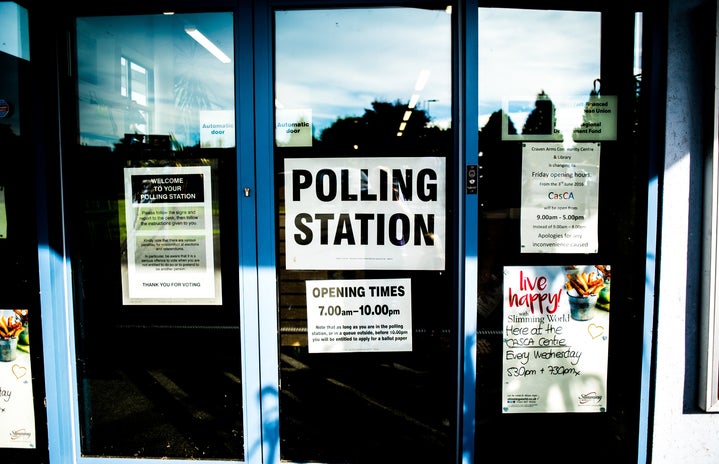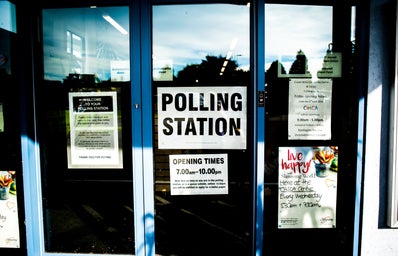On Sunday, August 9th, the primaries for the two main political parties in Puerto Rico, the New Progressive Party (NPP) and the Popular Democratic Party (PDP), or Partido Nuevo Progresista and Partido Popular Democrático respectively for their names in Spanish, were expected to be held. Politicians celebrated closing rallies on the eve of the event as affiliated electors hoped to end the grueling primary, a process that has been overwhelmed following the political unrest of last year and an ever increasing interest in alternative candidate options, most notably from the Puerto Rican Independence Party and the newly emerged Movimiento Victoria Ciudadana party.
However, then the morning of August 9th came. Voting centers across Puerto Rico started reporting that ballots had failed to arrive before the 8:00 a.m. start time. Citizens who had shown up to cast their vote started being told to come back at a later hour, while other centers functioned with only one of the two parties’ ballots. Some never received any ballots at all.
Puerto Rico’s State Elections Commission announced that polls would open at 11:00 a.m. and close at 7:00 p.m., instead of the original 8:00 a.m.-4:00 p.m. schedule. Ballots failed to arrive at stations even then. As the chaos quickly grew, an unexpected reality became certain. The electoral process, with votes already casted, would have to be postponed. And so it was, with August 16th as the new proposed date.
It begs the question: How did this happen?
Juan Ernesto Dávila, the commission’s president, explained after a day of silence that the issue was mainly due to a delay from Printech, the company in charge of printing the ballots, while also denying that it was foul play. Dávila’s words fail to settle the public, as the decision to postpone an already started election has been denounced as unconstitutional and a direct violation of citizens’ right to vote.
Although the commission ordered the volunteers at the voting centers to turn off the voting counters without printing the results, supposedly to not meddle with the process, some were ordered to do so anyway to “secure” the votes, citing a fear that what was happening was intentional in order to undermine the primaries in favor of specific candidates.
Shortly after the decision to postpone the primaries was announced, results were leaked around social media. The leaked results placed Pedro Pierluisi ahead of current governor Wanda Vázquez for the New Progressive Party’s nomination for the governorship, while Carlos Delgado led the votes for the Popular Democratic Party nomination, ahead of San Juan mayor Carmen Yulín Cruz and senator Eduardo Bhatia. Another noticeable aspect was that Thomas Rivera Schatz, the current president of the Puerto Rican Senate and the NPP, seemed in disfavor in the run to be one of the party’s nominees for senator at large.
There’s a lot implicated here. Apart from being evidence of gross negligence from our government to ensure an effective and safe electoral process, it sequesters Puerto Rican citizens’ right to vote. There’s no concrete way to guarantee the safety of the votes casted, while the leaders of the parties refuse to start the process over and instead insist that the process be continued next Sunday.
How did we get here?
The political landscape in Puerto Rico is murky. Contrary to what its name may imply, the New Progressive Party has all but established a fascist regime in Puerto Rico, currently controlling both the legislative and executive branches of government. Inner turmoil has plagued the party due to the division between Vázquez and Pierluisi supporters, with this primary being seen as the culmination of that clash of power.
Non-elected governor Vázquez’s reputation has been dwindling over the last few months. Perhaps the greatest blow was the reveal that ex-attorney general Denisse Longo had referred to the designation of an independent investigation on Vázquez’s, and other elected officials, handling of supplies meant for the victims of the January earthquakes in the south of Puerto Rico.
It’s not unreasonable to wonder if there was foul play involved. It’s rather peculiar how this disaster of a primary happens during a close election between members of the current party in power, where Vázquez and Rivera Schatz seemed to be lagging behind their opponents. There’s no accurate way to determine or predict the outcome of an election, but could an interrupted process favor those who seemed to be losing?
What happens now?
Pedro Pierluisi and Eduardo Bhatia have filed cases to the Supreme Court of Puerto Rico to validate and announce the results of the voting done on Sunday, while Bhatia’s specifically asks for the primary to continue in the upcoming days, not wait until August 16th.
Even with action being taken to continue the primaries, the elections have already been tainted. Candidates already know, or at least have an idea of, what candidates voters are favoring. Meanwhile, citizens who were able to cast their vote on Sunday have no guarantee that their votes won’t be manipulated. A corrupt process is being handled by corrupt people.
One thing is for certain: What happened should not be taken lightly. This catastrophic primary has been a direct violation to the only mechanism that gives citizens direct power on what happens in their government. Only time will tell what consequences this brings to the bipartisan regime that has gripped Puerto Rican politics for the last six decades, but it should serve as a clear indicator of where our country is heading if we keep electing officials of these parties and do nothing to change our public service.


